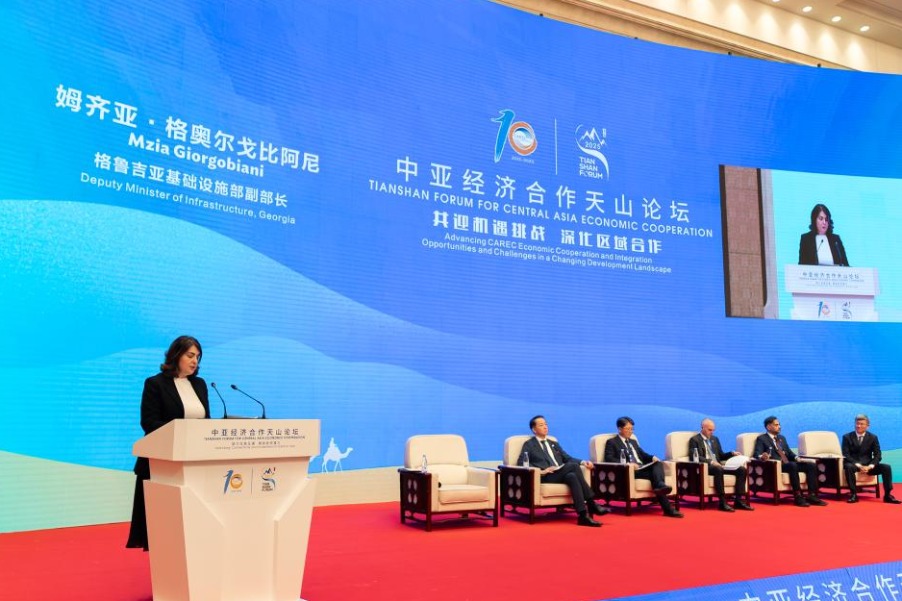Shanghai innovation center signs agreement with University of Birmingham

The University of Birmingham signed a cooperation agreement on Wednesday with the Shanghai-based National Innovation Center par Excellence (NICE) as part of the 2025 International Forum on Innovative Talents and Engineering Education.
NICE will provide industrial internship opportunities to students from the English university, while internship results will be included to evaluate students' performance.
According to Adam Tickell, vice-chancellor and principal of the University of Birmingham, this is the university's first undergraduate partnership outside the United Kingdom, and its aim is to better prepare students for their future careers.
With emerging technologies such as artificial intelligence rapidly reshaping the world, changes in university curriculum are needed, he said.
Also at Wednesday's event, NICE signed a cooperation agreement with the European Institute of Information Technology to provide industry-based learning opportunities in the Yangtze River Delta region, with the aim of nurturing globally-minded engineers with interdisciplinary skills and practical experiences.
According to years of research by companies in the Yangtze River Delta region, while many technology problems can be solved with capital investment, a shortage of the right talents with innovation abilities cannot be addressed immediately. Therefore, joint efforts among universities, industry leaders and institutions are crucial to strengthening the ties between education and the market, said Liu Qing, head of NICE.
Matt Burney, British consul-general in Shanghai, said at the signing ceremony that the cooperation, especially in engineering, is creating new opportunities for joint research, talent development and commercialization in areas such as clean energy, biomedicine and advanced manufacturing.
Apart from advancing innovation, such partnership enhances employability for Chinese and UK students by embedding real world industry experiences into engineering education, he said.
Yoslan Nur, a program specialist at UNESCO, stressed in his keynote speech that engineering is central to addressing global challenges and achieving the UN Sustainable Development Goals, providing solutions regarding renewable energy, climate-resilient infrastructure, digital transformation and clean water.
The demand for engineering talent is rising, but many countries - particularly in the Global South - face a growing deficit in both the quantity and quality of engineering capacity. Therefore, UNESCO is advancing a global initiative to strengthen engineering education systems through better policies, closer industry linkages, inclusive innovation ecosystems and vibrant international cooperation in order to ensure that no nation or talent is left behind, said Nur.
Echoing him was Wang Qiang, an official from the department of international cooperation at China's Ministry of Science and Technology, who said that innovative engineering solutions are needed for global challenges such as climate change, energy security, public health and sustainable development. All these issues have added new dimensions to the concepts, models and content of engineering education.
The core lies in education, and international cooperation is indispensable. Therefore, institutions and companies from home and abroad are encouraged to jointly conduct research, set up labs and nurture talent, he added.
- Police punish shopper after AI video used in fake crab claim
- Historians identify Chinese pilot saved by John Rabe in Nanjing
- Rainforest-themed activities launched in Hainan
- Hebei advances intelligent construction and prefabricated housing
- Seventh Hainan Island International Film Festival opens in Sanya
- Former chairman of Guangxi government expelled from CPC, public office





































